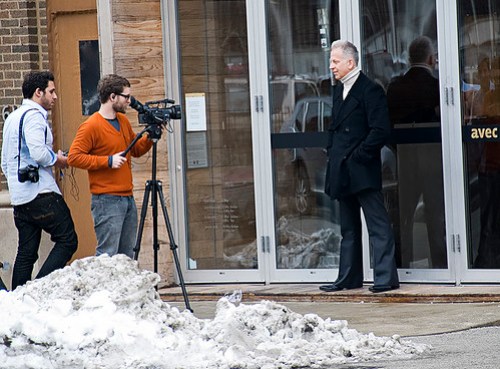You really should read Roger Ebert’s delightful memoir of the eccentric hotel on London’s Jermyn Street, originally called Eyrie Mansion.

That first morning I walked down Regent Street to St James’s Park, strolled around the ponds, came up by Prince Charles’s residence, climbed St James’s Street and returned the full length of Jermyn. I ordered tea. It consisted of tomato, cucumber and butter sandwiches, which the English are unreasonably fond of; ham and butter sandwiches, which I am unreasonably fond of with Colman’s English mustard; and cookies – or, excuse me, biscuits.
I had just settled in my easy chair when a key turned in the lock and a nattily dressed man in his 60s let himself in. He held a bottle of Teacher’s scotch under his arm. He walked to the sideboard, took a glass, poured a shot, and while filling it with soda from the siphon, asked me, “Fancy a spot?”
“I’m afraid I don’t drink,” I said.
“Oh, my.”
This man sat on my sofa, lit a cigarette, and said: “I’m Henry.”
“Am I . . . in your room?”
“Oh, no, no, old boy! I’m only the owner. I dropped in to say hello.”
This was Henry Togna Sr. He appears in a Dickens novel I haven’t yet read. I’m sure of it. He appeared in my room almost every afternoon when I stayed at the Eyrie Mansion. It was not difficult to learn his story.
[Click to finish reading Roger Ebert: Farewell to my London home |Travel |The Guardian ]

Heathrow bound, circa 1993-1994
Though actually, when I spent a fortnight in London, the hotel had already switched hands to Henry Jr., and had lost a bit of its eccentricity. Not all mind you, but I might not have been able to afford staying there. Too bad.
(oh, almost forgot, this article originally appeared at Ebert’s blog, slightly longer, with more pictures. Really, the longer article is better, filled with more interesting details. You should read that instead…)
Footnotes:
















